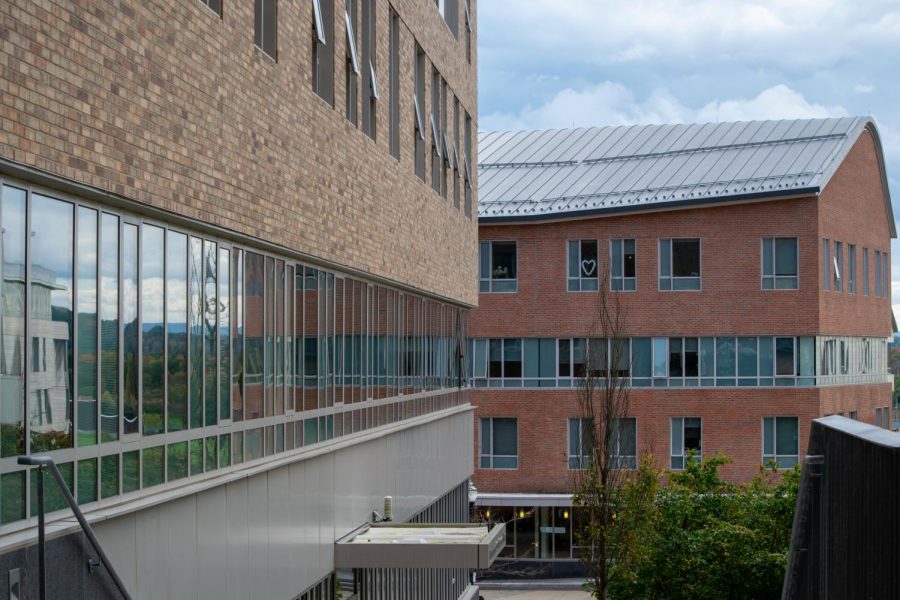One day after class I was doing the standard college student practice of watching Netflix and procrastinating. Watching the characters go through their daily lives, I almost forgot that the show took place in the 70s. When the main character stepped out of her apartment, panic shot through me as I asked myself, ‘why wasn’t she wearing a mask?’ In a three-second window I realized my mistake and laughed it off, but it left me wondering how the world is going to adjust when it’s all over.
Massachusetts is one of the last states with a remaining mask mandate and many health experts have expressed optimism regarding the state of the virus. With UMass Amherst requiring vaccinations and having a recent drop in positive cases, our campus may soon be mask-free.
Mask-free does not mean normal, though. COVID-19 will have long-lasting effects on the world at large and on our daily lives. It’s hard to say what the world will look like in a year from now. I have a few theories, however, about what the “new normal” will look like.
For starters, I don’t think we will ditch masks. Not in the sense that we’ll find ourselves having to wear them daily, but we’ll start wearing them when we have a cold. Countries like China, Taiwan and Japan have worn masks since the 1950s for stubborn colds, and the entire world may join them. That means the classmate hacking their lungs out in the back of class will still have a mask on, lowering your chances of getting infected.
Along the same line, people will be more open to staying out sick from work or school. UMass has encouraged students to not go to class if they feel unwell and most professors aren’t penalizing students for staying out for health-related issues. Working from home opened people’s eyes to the capabilities of the internet, giving us options other than coming to work and school while sick.
Working from home is not only a benefit to public health but a benefit for people with disabilities or long-term health conditions that make it hard for them to be out and about. If a student finds themselves with a more long-term debilitating illness, their classes will likely offer recordings of lectures. As for completing and passing in assignments, platforms like Moodle and Blackboard will continue to make that easy.
I also believe that working from home will help the environment. During lockdown, there was a decrease in carbon emissions as workers stopped commuting to work and travel shut down. Even after restrictions were lifted, a lot of people continued working from home. Business trips can now be done from a computer, easing commuting and travel.
I don’t think this will be a permanent normal, though. When people start to forget about COVID, I think they’ll turn back to traditional ways of education or the workplace. Some may feel like learning is done better in a classroom setting or that they can keep better track of worker productivity in an office setting. Not all jobs have the option to work from home, with positions in education, service, hospitality and health requiring employees to remain working in person. Despite these constrctions, those workers are not out of luck.
Coronavirus took a toll on jobs that underpay or overwork, with many of these workers being laid off due to state mandates. But now that things have died down and these industries have opened back up and need workers, no workers are coming. Millions of people are unemployed, so in theory, businesses should be able to find employees. Lingering issues from COVID-19 are making people stay out of the workforce. Whether it’s pre-existing health conditions or issues with childcare, people are opting out of returning to jobs where they’re receiving minimum wage with no benefits like a barista, or those who are overworked with few resources like a teacher.
With corporations struggling to fill positions the working class finds themselves in a new position: they are able to ask for more benefits, like childcare options or more funding for school systems. The people on top are realizing they need workers to stay on top and are scrambling to keep the tower from crumbling. After all, how often do you see fast food restaurants offering money for applications? If workers act now they can make the system work in their favor.
None of this is normal, before the pandemic the world expected you to keep on moving no matter how sick you were. We, as people, are not normal anymore. We’re scared of people not wearing masks on TV and overwhelmed by crowds in the dining hall.
The old normal is gone, but the new normal doesn’t seem that bad. Things will never be the same again, but I think that’s the one good thing we got from the virus. Welcome to your new normal.
Lily Fitzgerald can be reached at [email protected].


















